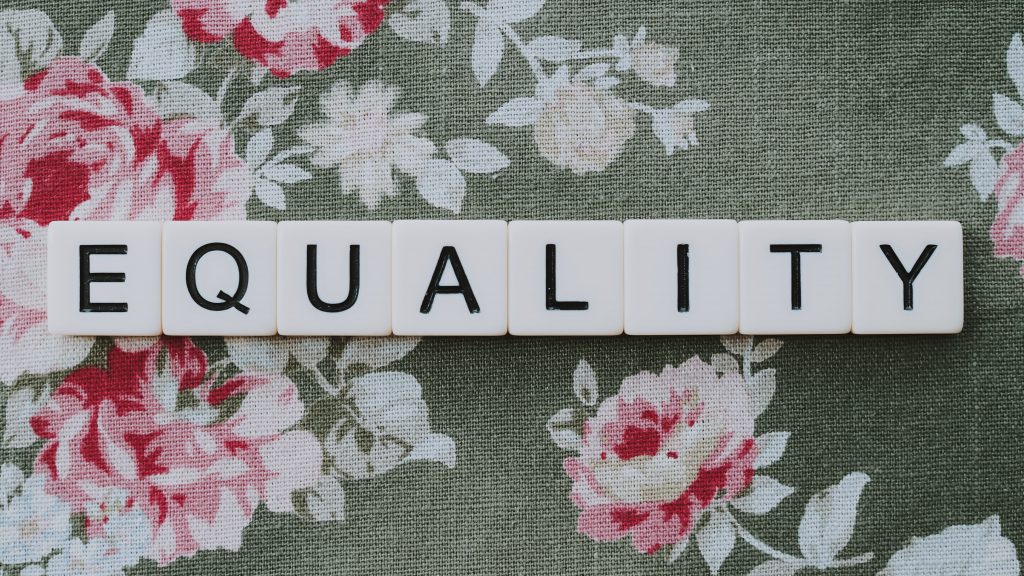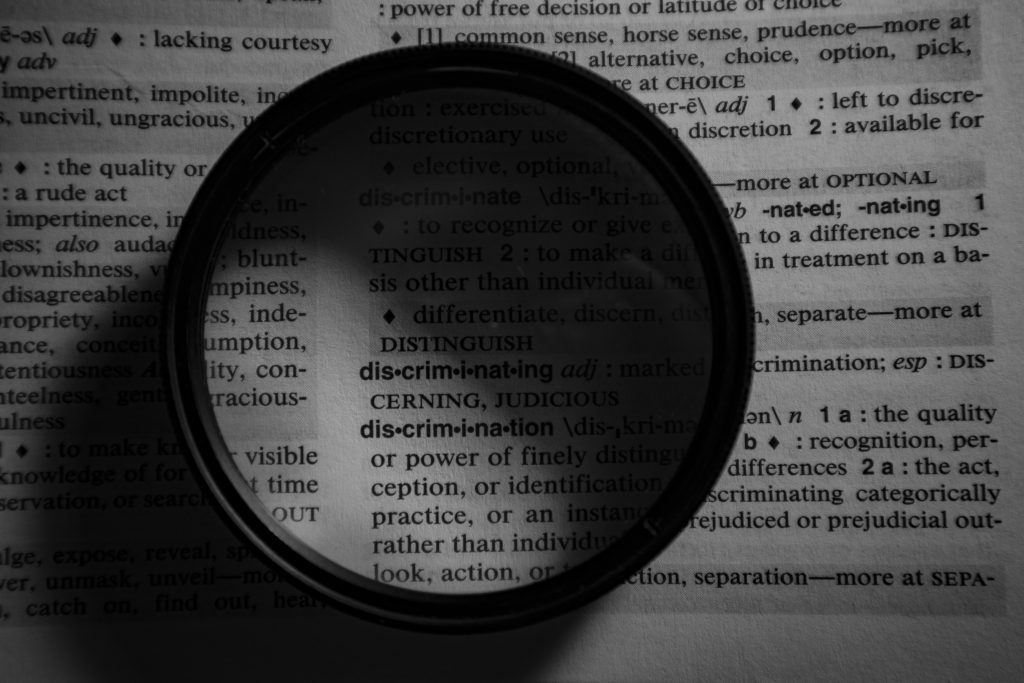Discrimination at work is unlawful, yet unfortunately, it still happens.
Everyone has the right to be treated fairly at work and HR plays an important role in ensuring that.
Often this is done by making sure fair practices are embedded into the business and upholding them. Occasionally, HR must step in to investigate wrongdoing or support disciplinary proceedings.
In this blog, we will examine the ways outsourced HR can help you prevent discrimination at work.

Types Of Discrimination At Work
Broadly speaking there are four types of discrimination at work; Direct Discrimination, Indirect Discrimination, Harassment, and Victimisation.
Direct Discrimination is treating someone differently because of a protected characteristic. This might be overlooking someone for a promotion because they are too old, for example. The protected characteristics are age, disability, gender reassignment, marriage or civil partnership, pregnancy and maternity, race, religion or belief, sex, and sexual orientation.
Indirect Discrimination is when a rule, policy, or practice applied to everyone puts one group at a disadvantage or treats them unfairly. For example, insisting all staff work a Sunday could indirectly discriminate against practising Christians for whom Sunday is a religious day.
Harassment is unwanted behaviour towards a person to humiliate or intimidate them that is based on or triggered by a protected characteristic. It might be name-calling, graffiti, offensive emails or ‘jokes’.
Victimisation is where someone is treated badly because they have complained about discrimination or helped someone complain about discrimination.
Discrimination at work is illegal and can be pursued through the civil courts. Damages awarded to victims are uncapped and can therefore be substantial. In fact, in 2018/2019, a victim of disability discrimination was awarded over £400,000 in damages.
How Can HR Prevent Discrimination At Work?

It goes without saying that discrimination at work is best avoided at all costs. It can have very serious consequences for a company and its directors.
The fact it is unlawful is enough of an incentive to do everything you can to avoid it. Include high court fees, large damages to pay the victim and a loss of reputation, not to mention the stress of prosecution, and taking preventative and proactive action becomes essential.
A properly managed HR function is a vital part of this.
The potential for discrimination begins even before an employee steps foot in your office on their first day. A job description and advert can be discriminatory if they ask for specific characteristics that exclude others from applying. For example, a job advert that asks for someone with ‘significant experience’ excludes younger applicants.
In one particular case, a recruitment process was found to be discriminatory because the tests it required applicants to complete indirectly discriminated against people with Asperger’s.
It is incredibly useful, therefore, to have an HR specialist help with job adverts, job descriptions, and the interview process to ensure no unconscious or conscious bias is being shown.
To underpin fair practices, an HR professional can also help with formalising a recruitment process, pay matrix, and induction process. Having a clear guide to follow will reduce the chance of discrimination in future situations and show that the company is committed to fair and equal opportunities. By having a robust Equal Opportunities Policy also sends a clear and serious message to employees that a company does not tolerate discrimination in any form. Changing the working culture within a company will also help stamp out discrimination and create stronger working relationships amongst staff.

HR can help to prevent discrimination at work by guiding other personnel related events, such as promotions pay reviews, redundancies and dismissals. An outsourced HR professional will be able to shape policies and processes as well as providing expert advice and guidance.
Do I Need HR?
It is a question we hear a lot. Do you really need HR? Is it just a luxury for bigger businesses?
Considering the costs associated with employment tribunals, we would say it is a pointless risk to not have a professional HR consultant involved in your processes and practices.
Not many of us set out to discriminate against an individual or group of people but may do so unintentionally. In this case, for example, a pregnant police officer was removed from her usual duties and given desk duties. Her employer believed it was the safest and best place for her to be because of her pregnancy, despite the police officer saying otherwise. She took them to a tribunal and won on the grounds of indirect sex discrimination. It is very likely that her employer was just trying to look out for her, but in doing so made a decision that negatively affected her career and prospects.
If you would like to speak to us about your recruitment process, or any other practice at your work that has the potential to be discriminatory, then get in touch. The initial 20 minute consultation is on us!
You can call us on 01706 565 332 or email info@metishr.co.uk.

